Check out sushisushi’s options to eat healthily in 2012
1. Brew it Green
Dump your caffeine packed tea bags for green tea. 2011 research by Oregon State University found that EGCG in green tea has a powerful ability to increase regulatory T cells in the body, boost the immune system and suppress autoimmune disorders.
2. Sprinkle Sesame On it
Sesame seeds are used in culinary as well as in traditional medicines for their nutritive, preventive, and curative properties. Its oil seeds are sources for some phyto-nutrients such as omega-6 fatty acids, flavonoid phenolic anti-oxidants, vitamins and dietary fiber with potent anti-cancer as well as health promoting properties.
3. Turn Your Sushi Brown
Yume Nishiki Super Premium brown rice has a much higher content of Vitamin B, Vitamin E, Calcium and minerals in the rice bran layer and the germ of brown rice than is contained in white rice.
4. Replace Cheese With Tofu
Mori-nu tofu is made from non-GM soyabeans, contains 0% cholesterol and is lactose free. Tofu is relatively high in protein, about 10.7% for firm tofu and 5.3% for soft "silken" tofu with about 5% and 2% fat.
5. Finish Off With a Ginger
Ginger aids digestion after sushi and cleanses the palette. There is no fat or protein in ginger and, while there are few proven facts, herbalists swear by its antioxidant, disease curing properties.
6. Try a Healthy Kombu
Lower rates of breast cancers have been reported in Japanese women eating a diet high in kelp. It is claimed that Lignans, which help to fight cancer are found in high quantity in kelp and may provide protection against certain cancers. Kombu is good for Iodine deficient individuals Seaweed can be treated as an energy booster in those who are iodine deficient and have underactive thyroids.
7. Make Your Own Nori Snacks
Cut up into strips, coat with water, add salt and bake for 10 minutes on a minimal heat until really crispy. Great, nutritional crisp replacements.
8. Miss Miso Miss Out
Miso paste is an excellent source of dietary fiber (59%) and protein (64% DV), as well as a good source of minerals . Miso paste is also high in amino acids, the basic building blocks of protein. An excellent source of vitamin K and a decent source of riboflavin (38% DV), miso also provides small amounts of other vitamins. One major benefit of miso is its extremely high omega-3 and omega-6 fatty acid content.
9.Bosh a Few Plums Off!
Umeboshi plums are considered good for digestion, prevention of nausea, and for systemic toxicity, including hangovers. The citric acid acts as an antibacterial, helps to increase saliva production and assists in the digestion of rice
10. Konnyak Who?
Konnyaku is used in making shirataki noodles. It is an ideal food for weight control since Konnyaku expands in the digestive system and gives the feeling that the stomach is full. At the same time, Konnyaku cleans toxins in the intestines.
*sushisushi uses verified sources and believes this information to be correct. If any of these facts are found to be incorrect, sushisushi takes no responsibility.

